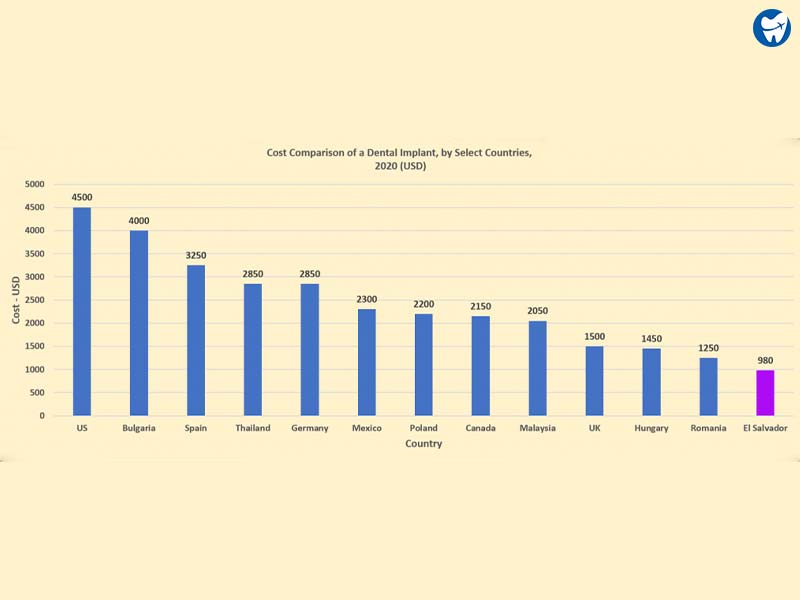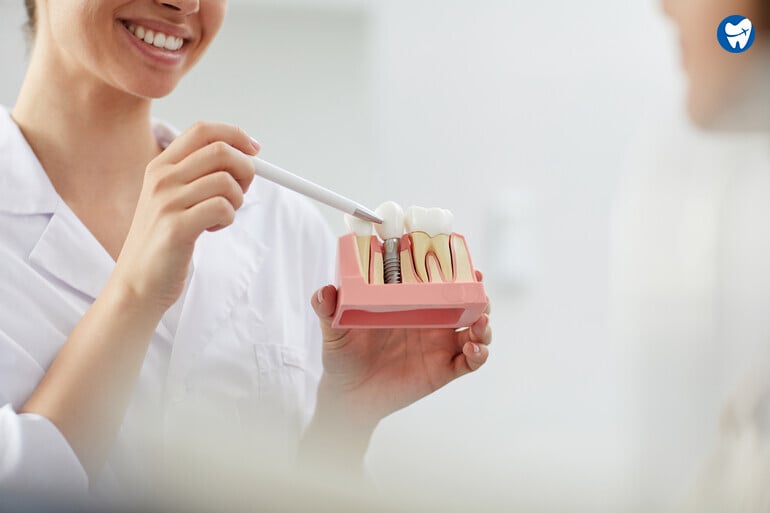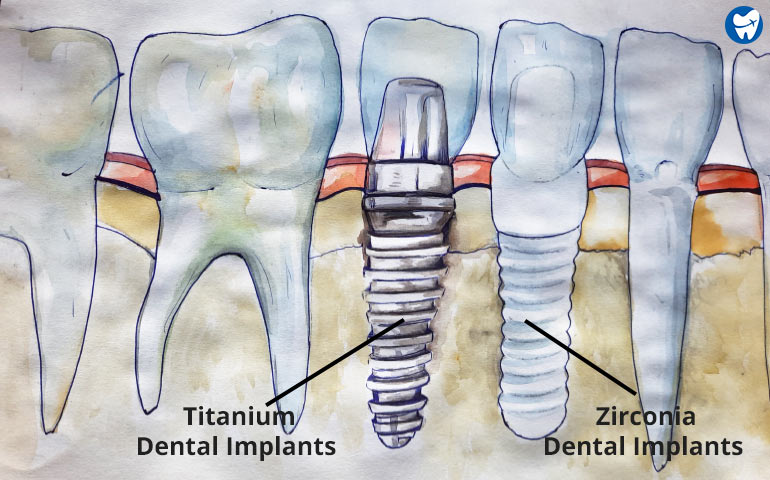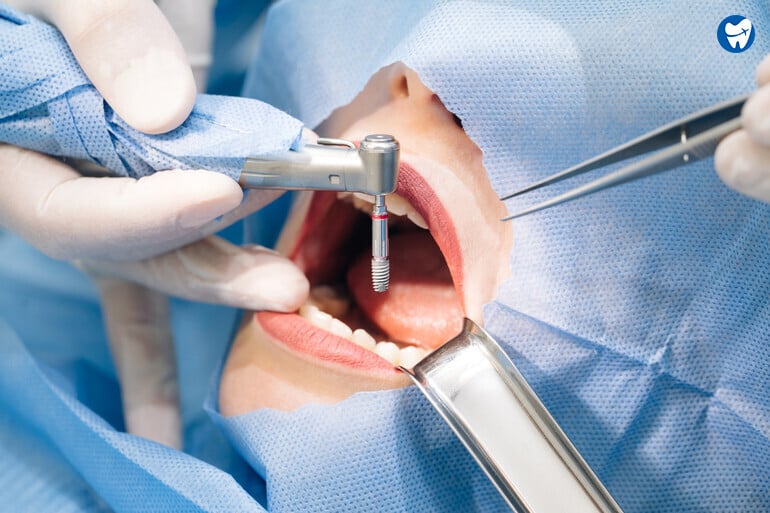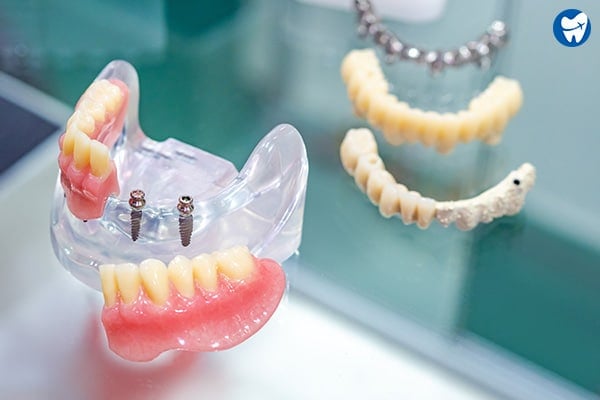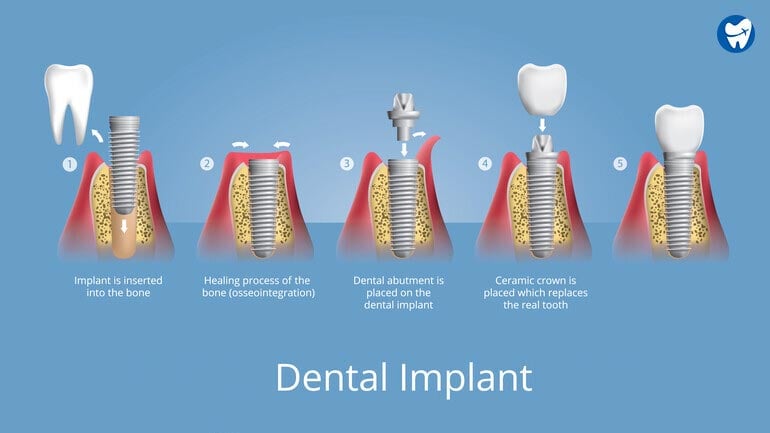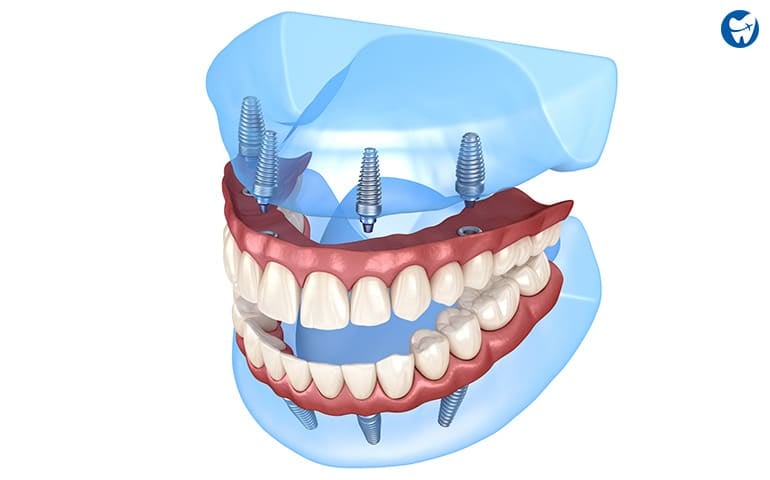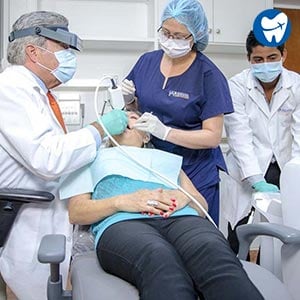El Salvador is one of the most attractive medical tourism destinations. Also, the low cost of dental implants in El Salvador makes it an attractive dental tourism destination for Westerners. [1]
Dental implants are the most reliable and modern way to replace missing teeth.
Due to the development of dental tourism, dental implants in San Salvador have become a popular choice.
Patient Testimonial – Dental Implants in San Salvador
In 2019, the Global Dental Implants market size was valued at USD 4.6 billion. [2]
Dental implants offer a safe approach and predictable results with a long-term success rate of up to 97%. [3]
Furthermore, the acceptance level for dental implants is increasing among patients and dental surgeons due to limitations of removable prosthetics. [4]
What is the Price for Dental Implants in San Salvador, El Salvador?
The average cost of dental implants is $980 in San Salvador, El Salvador. The same procedure in the US can cost you a whopping $4,500.
Cost Comparison in USD
| Procedure | USA | San Salvador, El Salvador |
|---|---|---|
| Titanium Implant | $4,500 | $980 |
| All-on-4 (per arch) | $24,000 | $2,200 |
| All-on-6 (per arch) | $28,000 | $3,500 |
*Prices may change with the complexity of a case
As shown in the table, US patients seeking dental implants in San Salvador can save as much as 70% of the price they pay in their home country.
Low-cost dental implants are also available in Latin American countries like Colombia, Costa Rica, Mexico.
Cost Comparison of a Dental Implant, by Select Countries, 2020 (USD)
Cost Comparison of a Dental Implant, by Select Countries, 2020 (USD)
Save thousands of dollars on dental implants!
Request free quoteSan Salvador Dental Clinic Review
Patient Testimonial – Dental Implants in San Salvador
Dental Implants Clinics in El Salvador
Are you looking for the best dental clinics in El Salvador for dental implants? Your search ends here.
Check out what our partner clinic has to offer you.
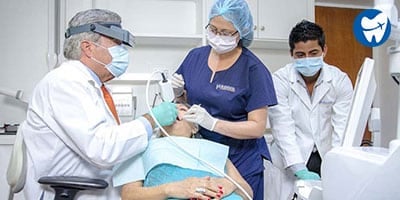
Prostho-Implants Dental Associates
- They are experienced in treating international patients.
- The staff comprises trained specialists with 30+ years of experience.
- They have an in-house lab with the latest equipment, like CAD/ CAM system.
Scroll ahead to see a detailed profile of the dentists.
Best Dentist in El Salvador for Dental Implants
Embrace your renewed smile with the skilled dentists in El Salvador for dental implants.
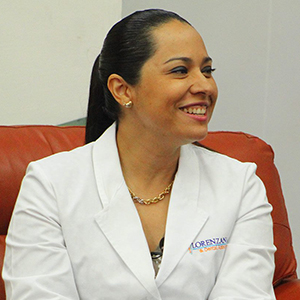
Expertise
Implants, All on 4/6/8, Gum SurgeryEducation
Universidad Evangélica de El Salvador- Certified in plastic oral surgery at the Center of Advanced Dental Education
Let us now explore a detailed comparison between dental implants and dental crowns.
Dental Implant and Dental Crown
Both dental implants and dental crowns are custom-made restorations for tooth decay or loss.
Depending on the dental health history and desired outcome, the best dental restoration technique is recommended.
Here are some of the features of dental implants and crowns.
| Feature | Dental Implant | Dental Crown |
|---|---|---|
| Image | 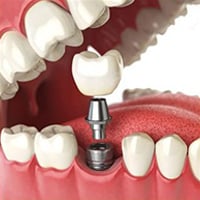 |
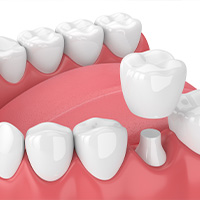 |
| Appearance | Natural-looking | Natural-looking |
| Material | Titanium or Ceramic | Metal,porcelain,ceramic |
| Feel | Same as natural teeth | Same as natural teeth |
| Support | Strong and stable | Strong |
| Material strength | Strong and durable | Chances of fracture |
| Bite strength | Same as natural teeth | Less than implant |
| Jaw bone strength | Preserves bone quality | Bone tissues dislocate |
| Effect on adjacent teeth | Remain intact | Prone to decay |
| Repairs and replacement | Never needed | Eventual replacement |
| Gum inflammation | Prevents infection | Promotes inflammation |
| Care | Same as natural teeth | Same as natural teeth |
| Durability | More than 25 years | 5 – 15 years |
| Procedure | More invasive | Less invasive |
| Tooth replacement | Full tooth | Only top portion of tooth |
| Placement | In the jaw bone | Over the existing tooth |
| Strength of jaw bone | Strong jaw bone required | Not required |
| Healing process | Lengthy | Short |
| Periodontal diseases | Implant is possible | Crown is not possible |
| Cost | Long-term solution | Short-term solution |
| Expensive but a lifetime investment | Cost-effective |
It is estimated that nearly 3 million Americans have dental implants, while the number the increasing by 500,000 annually. [5]
Dental Implant and It’s Components
A dental implant, also known as a screw-in-tooth.
It is a titanium rod that holds the artificial tooth (or teeth) in place.
Dental Implant
A dental implant has 2 main parts
- Fixture
It is the bottom portion of the implant, made of titanium. It has a cylindrical, screw-shaped design and is attached to the jaw.
- Abutment
It is the small portion that lies right around the gum line. It connects the fixture to the prosthesis (crown, bridge or denture).
Dental Implant Materials in San Salvador
The selection of a suitable implant biomaterial is a key factor for the long-term success of implants.
Ideally, dental implant materials should be biocompatible and resistant to both corrosions and to fracturing.
Titanium and Zirconium Implants
Widely Used Dental Implant Materials in San Salvador
- Titanium and its alloy
- Ceramic (also called Zirconia)
Both dental implant materials are biocompatible, FDA approved and considered safe.
Most importantly, implant type is recommended based on the case and patient’s concerns.
Titanium held the largest global market share in 2019 owing to the wide use of dental implants made up of titanium. [6]
- Majority of dental implants are made of commercially pure titanium which is about 99% titanium [7]
- Recently there is increased use of titanium alloy (90% Titanium, 6% Aluminum and 4% Vanadium) in dental implants. [8]
Are Titanium Dental Implants Safe?
Although titanium is thought to be safe with a high success rate, in some cases, there are rare reports of problems caused by titanium. [9]
Implant Placement
Pros & Cons of Titanium Dental Implants
Pros of Titanium Dental Implants
- High resistance to damage, hence preferred for dental implants [10]
- Long-lasting material with a survival rate of 98.8% over 10 years period [11]
- Nontoxic and biocompatible, so not easily rejected by the body
- Strong and durable yet lightweight
Cons of Titanium Dental Implants
Titanium Metal Allergy
- Titanium allergies are rare, occurring in about 0.6% of the population. [12]
- Metal dental implants in allergic patients can induce allergic-response. [13]
- Titanium-induced hypersensitivity can lead to implant failure [14]
Interference with Autoimmune Diseases
- Autoimmune disease can be caused by a combination of genetic components and metals in dental implants [15]
- Nickel, aluminum, and vanadium present in Titanium alloy can cause autoimmune diseases
- Vanadium in titanium alloy is harmful to the cell [16]
Titanium Corrosion
- Corrosion occurs when the titanium implant is in contact with fluoride or metal alloys in the saliva [17]
- Bacterial biofilms could induce oxidation on the surface of titanium implants in an acidic environment [18]
- Corrosion can cause a fracture of the implant. [19]
- Corrosion and oxidation on the implant cause metallic taste in the mouth
Galvanic Toxicity
- Titanium implants can react with other metals in the mouth, causing ‘oral galvanism’ or ‘the battery effect’ in mouth [20]
- Oral galvanism can increase sensitivity, autoimmune disorders and over-stimulate the brain [21]
How to Avoid Titanium Toxicity?
- Inform your dentist if you have any metal crown or implant already in your mouth. Your dentist will consider all the aspects of galvanic toxicity before using a titanium implant.
- If you are allergic to metal, you can go for titanium allergy tests.
Titanium Allergy/Rejection Symptoms
In general, titanium causes fewer allergic reactions than other metals. The symptoms associated with a titanium allergy or sensitivity include: [22]
- Burning or tingling sensations on the gum surface
- Dry, itchy patches on the gum tissue
- Redness in the tissues around the implant
- Swelling or pain at the implant site
- Oral dryness
- Loss of taste
- Mouth ulcers
- Headache
Global Titanium Dental Implants market is valued at 3769.5 million USD in 2020. [23]
Titanium vs Zirconia Dental Implants – Which is Better?
| Titanium Implant | Zirconium Implant |
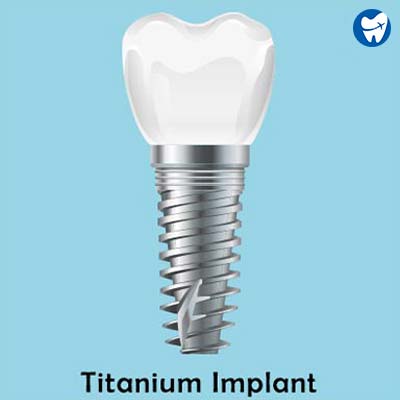 |
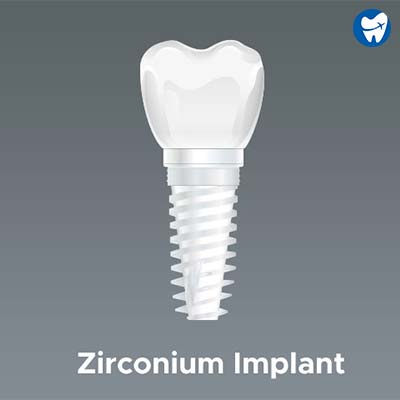 |
| Scientific Evidence | |
| Gold standard dental implants | Recent innovation |
| Reliable and well-proven | Long-term success is not proven |
| Tooth replacement option | |
| Used for all types of replacements including full arch or full set replacement | Mainly used for single tooth replacement and bridge cases & not recommended for full mouth reconstruction |
| Eligibility | |
| Not suitable for those with metal allergies or sensitivities or thin gum tissues | Ideal for people with known metal allergies, sensitivities & thin gum tissues |
| Esthetics | |
| Grayish color implant | Natural white color implant |
| Gray gums or titanium showing around the crown margin | Natural-looking. No discoloration |
| Material Design | |
| Pure titanium or its alloy (Aluminum, Vanadium, Nickel) | Metal-free crystal material (Zirconium dioxide) |
| Two-piece (Post and abutment) | Mostly single piece |
| Flexible and customizable | Limited flexibility and not customizable |
| Invasiveness | |
| More invasive | less invasive |
| One or more sittings- | Single sitting |
| Bone graft is easy | Bone graft is risky |
| Secured by torqued screws | Cemented restoration |
| Intraoral adjustments not required | Require intraoral adjustments |
| Easily heal under the gums | More healing time [24] |
| Implant margin is at the bone level. They are difficult to clean & have bacterial risk | Implant restorative margin is at gum level. They are easier to clean & lead to better oral hygiene |
| Micro gaps present after implant placement- Bacterial risk | No micro gaps- Less chance of plaque accumulation and bacteria |
| Endurance | |
| Strong and resist fracture | Though strong, prone to micro fractures |
| Strength remains same as the implant ages | Strength, density, and toughness reduce over time |
| Suffers corrosion | Metal-free. Non-corrosive |
| Allergies & Sensitivities | |
| Can cause metal allergy | Hypoallergenic. |
| Metallic taste in mouth | No metallic taste |
| Conductivity | |
| Conduct heat | Non-heat conductive |
| Complications | |
| Bleeding and receding gums are frequent around implant | Bleeding and inflammation are very rare |
| Chances of gum infections due to 2-piece system | No prosthetic connections, better gum health |
| Long-term complications can be avoided [25] | High chances of long-term complications |
| Implant failure may occur due to hypersensitivity & corrosion | Implant failure may occur due to microcracks & low-temperature degradation [26] |
| Corrosion may lead to peri-implant bone loss | Preserves bone |
| Other features | |
| Titanium mini dental implant is available | Not manufactured in narrow diameters |
| Cost-effective | Expensive |
Type of Dental Implants in San Salvador
Design-based Implants
Endosteal Implant (in the bone)
- Also called as root-form or endosteal or endosseous implant
- Most safe and commonly used type of implant
- Placed into the bone
- Made of metal, ceramic or polymeric material
- Design types – screws, cylinders
Subperiosteal Implant (on the bone)
- Suitable for those with minimal bone height
- A metal frame is fitted onto the jawbone just below the gum tissue
- The implant is placed to the posts that are attached to the frame
Zygomatic Implant (in the cheekbone)
- Least common type
- Complicated procedure
- Recommended for those with weak bone stimulation and jaw structure
Zygomatic Implants Vs. Other Full-Mouth Rehabs
| Zygomatic Implants | All on 4 | All on 6/8 | Removable Dentures |
|---|---|---|---|
| Fixed bridge is supported on implants placed in cheekbone | Fixed hybrid denture is supported on 4 implants in the jaw bone | Fixed bridge is supported by 6/8 implants in the jaw bone | Remove and clean |
| Graft-less | Graft-less | Bone graft may be needed | Graft-less |
| Highly stable | Highly stable | Highly stable | Less stable |
Treatment-based Implants
- Single-stage implant – Subperiosteal implant is often used in a single-stage
- Two-stage implants – Endosteal implant is placed in two-stage
Material-based Implants
- Metallic – Titanium and its alloys, Cobalt-Chromium Molybdenum alloy
- Non-metallic – Ceramics, Carbon, etc
Surface-based Implants
- Smooth surface – Prevents microbial plaque retention
- Textured surface – Increase the surface area to which the bone is bond
- Machined surface – Provides support to the bone
- Coated surface – Coated with Titanium and hydroxyapatite
Size-based Implants
| Standard platform | Wide platform | Mini or narrow |
| 3.5-4.2 mm diameter | 4.5-6 mm diameter | 2-3.5 mm diameter |
| Placed in the front part of the mouth | Placed in the back of the mouth | Used to secure a lower denture for patients with less bone |
Mini Dental Implants in San Salvador
Mini Dental Implant (MDI) is a smaller version of a regular dental implant.
It is a one-piece screw (less than 3mm diameter) screwed into the jaw bone. On the top, there is a ball-shaped protrusion that helps support dentures.
Mini Dental Implants
The other names of mini dental implants are
- SDI or small diameter implant
- NDI or narrow diameter implant
Why Mini Dental Implants are Popular?
MDIs have gained popularity due to their versatility. They are used to replace individual missing teeth.
They can also help in other dental procedures such as dentures and crowns.
Above all, MDIs provide long-term support for a variety of dental prosthetics.
The other benefits of Mini dental implants are
- A permanent tooth replacement option
- MDI is placed in one visit
- Less invasive procedure
- Can be performed by a general dentist
- Less risk of surgical error
- Do not need bone grafts and complex flap surgery
- Faster healing time
- Do not slip or feel awkward like dentures
- Can be used in patients with less bone
MDIs Can be Used
- In areas that are too narrow for a traditional implant
- To secure a bridge over the top of your teeth or a pair of dentures
- For patients with bone atrophy
Implant Restorations in San Salvador
Single Tooth Replacements
A single missing tooth can be replaced with a single implant and a crown
Multiple Tooth Replacements
- Multiple missing teeth can be replaced with multiple implants supporting individual crowns or fixed bridgework
- A minimum number of 4 – 8 implants are needed to replace a full arch with 10 or more crowns by fixed bridgework
Dental Implant Procedure in San Salvador
A dental implant is usually done in stages over a few months. The procedure involves three phases:
The implant is surgically placed in the jawbone, beneath the gum tissue.
It is allowed to integrate into the jawbone for three to six months through a process called osseointegration.
An abutment (post) is fixed to the implant and the gum tissue is allowed to grow up around it.
The implant and post can sometimes be placed simultaneously.
The implant together with the post serves as an anchor for the replacement tooth (implant crown).
Finally, a customized crown is attached to the implant post.
Implant Process
All-on-4 Technique
All on 4 Dental Implants
A full set of upper or lower teeth can be replaced with just 4 dental implants. In this technique
- 4 dental implants are placed on the top and/or bottom of the jaw
- A set of temporary teeth are attached to implants with the help of abutments
- After the implants heal and fuse with the jaw bone, a set of permanent teeth are attached to the implants
- A bone graft is not required
Read the all-on-4 treatment procedure here
All-on-6/8 Technique
A full set of upper or lower teeth can be replaced with 6 or 8 dental implants.
The procedure is the same as the all-on-4 technique yet offers more support for the prosthesis. Bone grafting may be needed in the All-on-6/8 technique.
Benefits of Dental Work in San Salvador, El Salvador
DentaVacation’s partner dental clinic in San Salvador provides a comprehensive range of dental services, from restorative crowns and bridgework to affordable dental implants.
Some of the key reasons to opt for dental implants in San Salvador include:
Cost-effective Dental Implants
- You can expect savings up to 70% on the US or Canada’s cost (Refer cost table).
- Moreover, the cost of living in El Salvador is 35% cheaper than in the US. Food and hotel accommodation costs are 50% less than in the US. [28]
Clinic Facilities and Equipment
- Treatments are performed using cutting-edge technology, adhering to the strictest international standards
- The dental lab of our San Salvador partner clinic has the latest and state-of-the-art technology
- The clinic uses renowned brands and the highest graded materials in dentistry
- The dental supplies for the implants are sourced from the US
Highly Competent Implantologists
- Highly experienced dentists. Most of them are trained at prestigious dental schools in the U.S
Fast Treatment
Dental appointments in the San Salvador clinic take less time, so lodging expenses are low.
Language No Barrier
- The dental staff are fluent in English and Spanish
- Spanish is the official language. Salvadoran Spanish is the name of the Spanish spoken in El Salvador [29]
Easy Accessibility
- San Salvador can be reached by land, water, or air. 86 countries have visa-free entry for travel up to 90 days [30]
- El Salvador can be reached from most US cities within 3 to 7 hours.
- Due to the affordability of the treatments, traveling to San Salvador for dental implants can be clubbed with a vacation as well.
Travel Assistance
- Our partner clinic takes care of your needs for the entire dental implant treatment
- Accommodation, transportation, communication, and tours are available on request
Questions to Ask Before Choosing an Implant Dentist in San Salvador
- What treatment options does the clinic use to restore missing teeth?
- How many implants have they placed?
- What is their success rate?
- What is their education and training in implant treatment?
- Which technique and type of implant do the clinic recommend and why?
- Who performs the implant procedure and the steps involved in the process?
- What type of anesthesia do they use?
- What are the risks of the treatment option they are recommending?
- Do they give any guarantees for implants?
- What to expect throughout the treatment in terms of pain, recovery time, eating, etc.?
- Will the patient have teeth throughout the process?
- How many times does the patient need to return for treatment to get implants fitted?
- What will be the total cost of dental implants?
- Can the clinic provide before-and-after photos of their former implant patients?
Read more about related dental work posts here: Dental Work in El Salvador, Dental work in San Salvador, Dental Implants in El Salvador
FAQ on Dental Implants in San Salvador
- CAD-CAM (Computer-aided design and Computer-aided manufacturing) technology is used for veneers, bridges, and crowns, as well as abutments for implants.
- CAD-CAM CEREC (Chairside Economic Restorations of Esthetic Ceramics) technology is used in ceramic restorations. The aesthetic restorations are safe and can be completed in a single visit.
- Other technologies include dental implant system, digital X-rays, CT scanning equipment, etc
